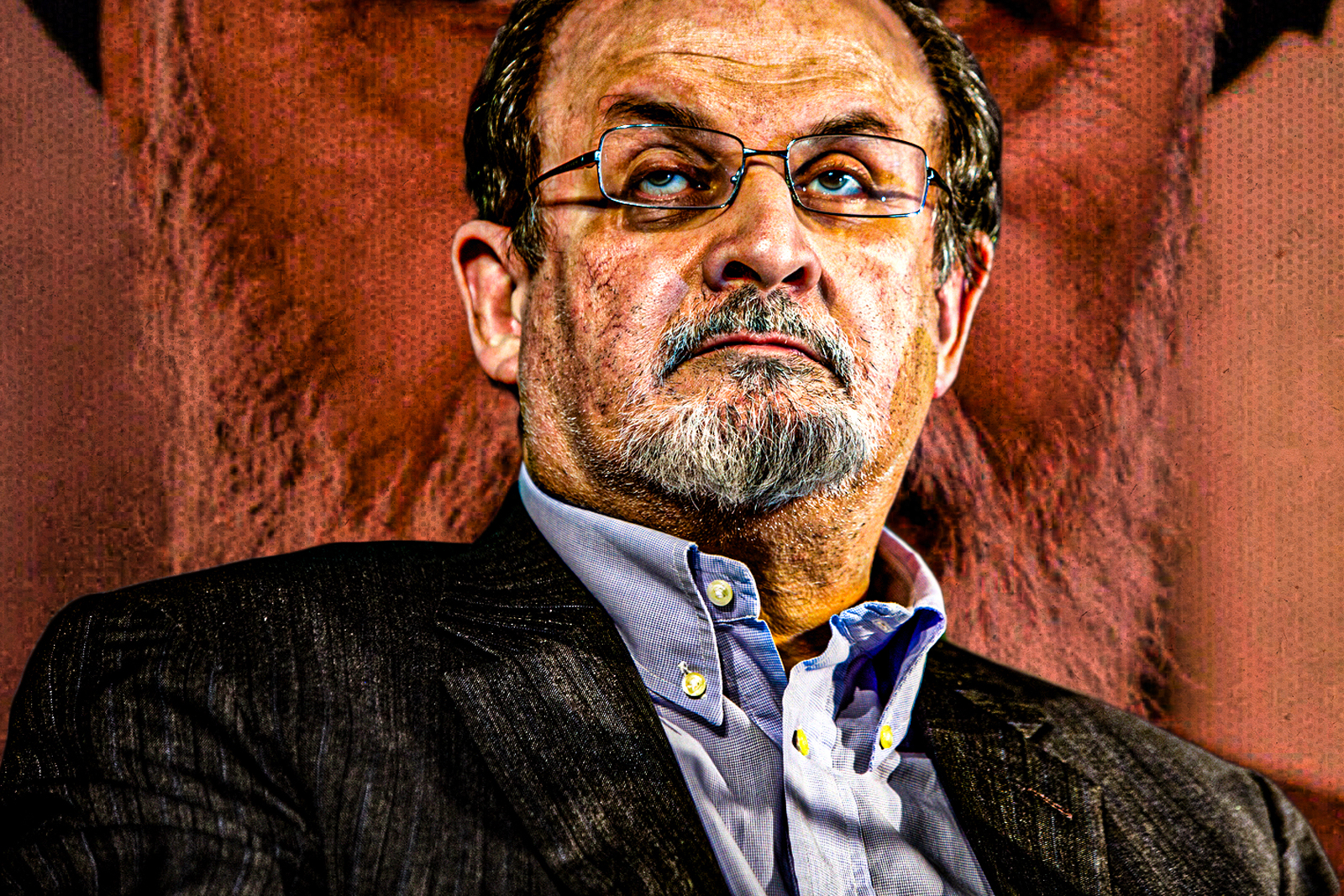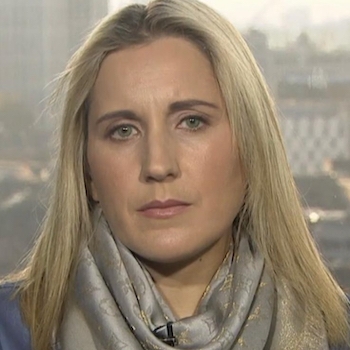
Rushdie Attack Highlights Iran’s Intransigence
Words fail to describe the barbarity which animated Hadi Matar as he attacked Salman Rushdie this August, hoping to wash the offense he perceived the renowned author had committed against Islam.
Tackled to the ground by members of the audience, Matar, who remains in custody, is said to have acted out the command of Ayatollah Ruhollah Khomeini, his ideological role model, who back in 1989 thought wise to condemn Rushdie to death over the publication of The Satanic Verses, a novel he viewed as incendiary towards Islam – an act of apostasy warranting the most radical rebuttal.
The Islamic Republic claims its innocence, denying any links to Matar. It is somewhat difficult to believe, actually it is laughable for any of us to entertain such a statement, even for a moment. And though Iran and its many arms may not have commissioned the attack, it is evident that if not for the ayatollahs’ ideological export, Rushdie would not have had to suffer such brutality.
A champion of free speech, the author’s life was forfeited several decades ago under the injunction of Ayatollah Khomeini, to be at his death renewed by Ayatollah Ali Khamenei. As it were any and all attacks on Islam, its tenets and figureheads are offenses passable of death well beyond Iran’s jurisdiction.
In fact, not only do Iran’s religious rulings know no geographical bounds, but they know no statute of limitation. Once an apostate, always an apostate.
Such is the nature of the Islamic Republic; such is the worldview espoused by those leaders our democracies have insisted we break bread with in the name of normalization!
Iran’s religious ideology, its very particular brand of Islamism, is unforgiving. It stands on par with the Taliban, Al Qaeda, ISIS, and other iterations of terror. The fact that we refuse to draw parallels between those beggars belief.
There lies I believe our biggest shortcoming – or rather, that of our elected officials. I fear that economic pragmatism and our pursuit of energy security have clouded our judgment, blinding us to the threat Tehran represents to our national security – never mind the fact that as individuals we could fall prey, with a few words, to the fury of Iran’s ideologues and suffer Salman Rushdie’s fate.
Rushdie may have suffered in his flesh the self-righteousness of the ayatollahs’ regime, but let us be clear, Matar’s knife was directed at all of us. It is our freedom, our civil liberties, and our commitment to multiculturalism that the Islamic Republic wishes to lay waste to. We would do well to recognise the premise of war in Iran’s new-found boldness.
The last few weeks speak with no uncertain terms of Iran’s ideological reach. Not only that but it demonstrates the potency of its network of influence. First came the attempted assassination of Masih Alinejad over her advocacy for women’s rights, then news that the United States had uncovered a plot against John Bolton, national security adviser under former President Trump, and finally threats leveled at JK Rowling, a celebrated British author, over her support for Salman Rushdie.
Such threats did little to deter our capitals from resuming new rounds of negotiations with Tehran to revive the Iran nuclear deal. It seems Iran was given a ‘carte blanche’ courtesy of the energy resources it holds; that and the promise of lucrative trade deals. The notion today that a nuclear deal would strengthen our national security and defuse military tensions in the region is preposterous.
The Islamic Republic is more dangerous today than it has ever been at any given point in its history. And no, the threat is not limited to the Middle East or Israel, our most strategic ally in the region. We, our democracies are in the line of fire.
The shadow of Iran’s ayatollahs quite literally blots our skies. Academia, politics, NGOs, finance…no sector has escaped the perverse influence of Islamists. The rise in anti-Semitism and the many attacks Jewish communities across the West have had to contend with is proof of that.
I’d like here to recall the words of Voldemort, he, who shall not be named when he told Harry Potter: “There is no good and evil, there is only power and those too weak to seek it.”
Why is it that against all reason, and logic, our elected officials insist in appeasing Iran when they ought to challenge its belligerence and call into question the abomination of its intolerance? Why is it that our officials offer cover to Tehran’s rhetoric?
Have we grown tolerant of terror? Have we become so accustomed to the assaults of Islamism and its arguments against our way of life that we came to choose self-flagellation to atone our sins of apostasy?
Salman Rushdie’s attack foretells of Iran’s continued intransigence and its refusal to moderate its extremist ideologies.

